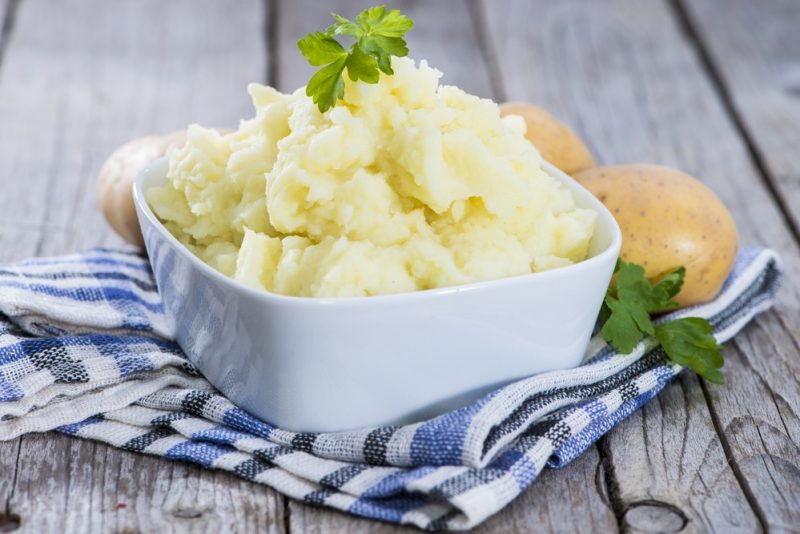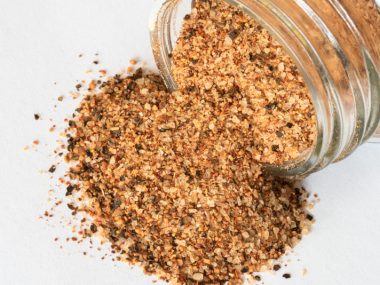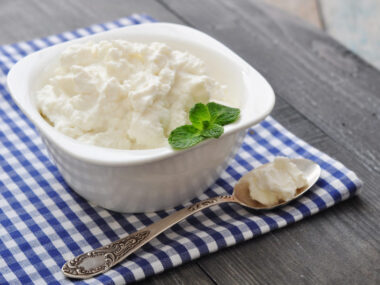Mashed potatoes are a holiday food staple for real. You have it on thanksgiving, special occasions, or just for daily carb meals. We seem to just can’t get enough of this creamy and smooth starch goodness.
But the question is, “How long can mashed potatoes be allowed to sit out?”. The general rule of thumb according to idahopotato.com, hot foods can only be exposed at room for 2 hours and need to be at 135 degrees F and above to avoid bacteria.
If it was just mashed potatoes alone, it’s okay to leave them out. The concern here is the dairy products that you mixed in your mashed potatoes. Let’s discuss why you can’t leave your mashed potatoes out in the open for a long time.
How Does Mashed Potatoes Go Bad?
The Food Safety Council according to abcnews.go.com, explains that when cooked foods linger more than 2 hours at room temperature, they can become dangerous.
The bacteria Bacillus Cereus is a colorless, odorless, and tasteless kind of bacteria. Starchy foods like mashed potatoes are breeding grounds for this type of microbe. This can cause excessive diarrhea and vomiting.
I guess you’ve heard it from your mom before to never mix mashed potatoes with meats to avoid it from spoiling. Starchy dishes are most likely to develop bacteria at temperatures between 40-140 degrees F. Those temperatures attract toxic bacteria and can quickly multiply without you noticing.
What happens when mashed potatoes sit out for more than 2 hours?
The warmth from the food and moisture from the milk mixed in mashed potatoes can produce a single bacteria that can divide every half an hour. If you do the math, it can spread more bacteria for a total of 10 million new bacterias in 10 hours alone.
When exposed for a long time on your dining table, these toxic microbes may spread on your table and even in your hands.
According to the US Department of Agriculture’s Food Safety and Inspection Service, Staphylococcus Aureus is a type of bacteria that lives harmlessly on our skin and inside our nose and throat. This is the bacteria that can spread if you handle your food preparation improperly.
This bacteria turns into harmful toxins that attack your gut specifically, which could lead to stomach cramps and terrible diarrhea. It can begin hours to days after swallowing contaminated and spoiled food.
Why do Dairy Products can Easily Spoil Mashed Potatoes?
Most dairy products have higher fat content and very low water content. This is the reason why bacteria can thrive and multiply since these characteristics support bacterial growth.
That’s the reason why opened packs and cartons of milk or butter need to be stored in the fridge. The cold temperature helps preserve its freshness. Failure to do so makes the milk prone to producing bacteria which converts lactose into glucose and galactose, producing lactic acid.
Lactic acid produces casein and forms a curd that curdles the milk for 24 hours. This is considered spoiled and must be thrown out.
A bacteria called listeria monocytogenes, are found in soft unpasteurized cheeses that can thrive even in cold temperatures and multiply continuously. Some people might be immune to this bacteria but pregnant women and the elderly are high risks. It could cause miscarriages for pregnant women and terrible poisoning for elderly people.
So before you reheat your once “hot mashed potatoes”, think twice. Food poisoning is no joke, it could make you sick so bad. The worst part is, it could lead to life-threatening results like death.
We don’t want that, right?
How To Make Mashed Potatoes Last Longer?
When hosting a gathering or celebration feast, make sure you monitor how long you’ve exposed your mashed potatoes on the table. This also applies to any food. Make sure you don’t leave them out for more than 2 hours.
To maximize its shelf life and stop the spread of possible bacterias, refrigerate any cooked potatoes like mashed potatoes, after 2 hours of cooking. Store it inside a clean airtight container or resealable plastic bags.
When stored well, your mashed potatoes could last up to 3 to 5 days in the fridge. You can also freeze it since mashed potatoes freeze well unlike boiled potatoes. You can freeze them for up to 10-12 months safe and sound.
Once you thaw your frozen mashed potatoes, you can still keep it in the chiller for 3-4 days. However once thawed mashed potatoes are cooked, you should consume it immediately. Any leftovers need to be thrown out.
When reheating it, make sure to cook it at least 165 degrees F to kill all harmful bacteria. Stir it well to make sure it’s heated evenly.
How Can You Tell If Your Mashed Potatoes Have Gone Bad?
The best way to test is by smelling. Smell your leftover mashed potatoes. If it has a foul smell or appearance, discard it immediately.
Spoiled mashed potatoes are noticeable. It will start to get liquidy and begin to separate from the solid parts. It will most likely smell very sour with a white liquid haze on the surface.
NEVER DO THE TASTE TEST. It’s not worth risking it, your health is at stake and bad food poisoning can be underway.
Still, it’s important to note that some bacterias don’t smell like what we mentioned beforehand. When in doubt, throw it out.
My Own Experience and Extra Food Safety Tips!
As a certified foodie and home cook, food safety is non-negotiable. Food handling is not an easy task. That’s why it’s important to observe safe and clean practices when handling and preparing food.
- Always shop for the freshest produce and meats. Be a meticulous buyer and don’t pick blemished goods. Blemished veggies or meats might have bacteria present that can be spread in your dishes. Fresh produce stores well and has a better shelf life.
- One reason why foods can spoil faster is through improper food handling. I always make sure to wash every ingredient I use after buying them before storing them. Before cooking, I wash them again as an extra precaution.
- Maintain a clean fridge. Even if you safely stored your leftovers like mashed potatoes but the fridge is dirty, it’s still useless. Dirt and other contaminants in your fridge may spread if not cleaned. I do have a schedule for cleaning the fridge as well as monitoring the shelf life of foods being stored inside.
- Maintain a clean kitchen counter. Food contaminants can be present in your kitchen especially if it’s filthy. Never leave a dirty kitchen and always practice “clean as you go”.
- Cook meals properly. I always keep track of the temperature and cooking time. It’s one way of measuring whether the food was cooked well or not. This applies to reheat leftovers as well.
- When serving food, use a serving spoon. Never allow your household or guests to use their spoon and fork when getting their food. This is one of the reasons why food can be contaminated or spoiled. On top of that, it’s very unhygienic as well. Practice good eating ethics.
- Sterilize containers for leftover food. Storing leftover food must be done strictly. Clean your containers well and make sure it’s dried well before storing your food. Pick a good sealing container that blocks air that can contaminate your food. I usually get the lock and lock Tupperware brand, since they work perfectly. When I store food, I don’t fill them up all the way. I always give at least 2 inches to separate the steam from the food. That way, the food won’t spoil fast.
We hope we cleared some grey areas in your “mashed potatoes concerns” which involve some serious questions. Food safety shouldn’t be taken so lightly. It should always be a priority.


